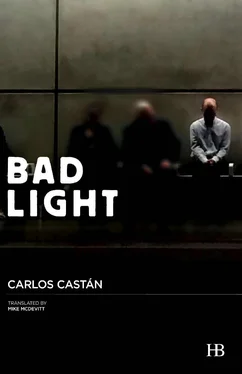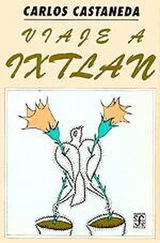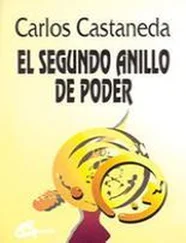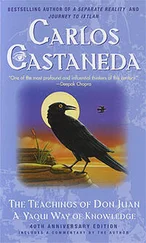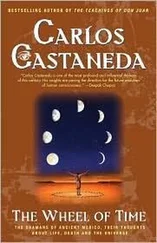Carlos Castán - Bad Light
Здесь есть возможность читать онлайн «Carlos Castán - Bad Light» весь текст электронной книги совершенно бесплатно (целиком полную версию без сокращений). В некоторых случаях можно слушать аудио, скачать через торрент в формате fb2 и присутствует краткое содержание. Год выпуска: 2016, Издательство: Hispabooks, Жанр: Современная проза, на английском языке. Описание произведения, (предисловие) а так же отзывы посетителей доступны на портале библиотеки ЛибКат.
- Название:Bad Light
- Автор:
- Издательство:Hispabooks
- Жанр:
- Год:2016
- ISBN:нет данных
- Рейтинг книги:5 / 5. Голосов: 1
-
Избранное:Добавить в избранное
- Отзывы:
-
Ваша оценка:
- 100
- 1
- 2
- 3
- 4
- 5
Bad Light: краткое содержание, описание и аннотация
Предлагаем к чтению аннотацию, описание, краткое содержание или предисловие (зависит от того, что написал сам автор книги «Bad Light»). Если вы не нашли необходимую информацию о книге — напишите в комментариях, мы постараемся отыскать её.
Carlos Castán
Bad Light
Bad Light — читать онлайн бесплатно полную книгу (весь текст) целиком
Ниже представлен текст книги, разбитый по страницам. Система сохранения места последней прочитанной страницы, позволяет с удобством читать онлайн бесплатно книгу «Bad Light», без необходимости каждый раз заново искать на чём Вы остановились. Поставьте закладку, и сможете в любой момент перейти на страницу, на которой закончили чтение.
Интервал:
Закладка:
I listen to my mother talk, seated in front of her coffee, with those girlish gestures and her gaze lost in the distance, and I picture her mind as existing within a ravaged landscape — fallen trees, dried-up ravines, houses torn down. I think of those twin panoramic images on the news showing the same view of a city before and after an air raid: on the left, a cathedral tower topped with bells and storks, and on the right, the heap of rubble that lay in its place; on one side, the sturdy bridges over some river anywhere on the map of Europe, and on the other, the solitary pillars protruding from the water’s surface like concrete stumps. Then I turn my gaze on myself and wonder if, after a certain age, the mind can be anything other than a ravaged stage — raised floorboards, nails jutting out here, there, and everywhere, stripped wires, spotlights that shine no more — and if there is nothing for it but to place there, half in darkness, everything we see or that happens to us, so that it might blend in with our existing memories, the desolation of before, the ancient fear. Once you have a few years on the clock, this new form of a priori sensitivity to the outside world emerges sooner or later — the broken stage of a twobit theater in ruins on which the world unfolds, now moth-eaten, with no show to premiere, poorly lit. That’s where everything must go, good and bad. Outside those borders lies the dark realm of the noumenon where, owing to its sheer vastness, there is room for nothing, nothing happens, and nothing has a name.
She asks me to take her to the cemetery. She makes the same request of everyone who happens by, including visiting strangers, the waitresses from the cafeteria, and the other residents. Without much success, but this does nothing to stop her trying. I lie to her once again: I don’t have my car, I took it to the garage to be fixed, I had to come to see her by bus. She tells me that when no one is looking, neither the old women nor the nurses, she pulls up flowers from the garden to leave on my father’s grave, but they always wilt, hidden at the back of the closet, since no one wants to take her to the cemetery.
It dawns on me that everything we’ve discussed has to do with death. Dead children laid out for viewings on postwar afternoons, drownings in the river, Dad, people fleeing amid screams from the shadow cast by a plaster angel. When I take my leave, I make the sign of the cross on her forehead just as she used to when saying goodnight. She smiles.
All of a sudden she is a child loved by someone. I think that when she dies and her brains mingle with the earth, all that most belongs to her, that is most hers — in other words, the damp crevices of her brain, say, or the wells of anguish, the entire labyrinth of blood vessels through which her fears stumble without reason — will live on in me. I know such things will stay here. Easy now, Mom, I tell her, soon you’ll be dead but you’ll be able to breathe. And we’ll carry on sharing whatever is left, the nothingness of us both — the air I drink in up on the surface, its tedium and sorrow, will be for the two of us, as will the darkness in which you lie.
14 (password)
Deep down, though I had no wish to stop and think about it, I knew from the beginning that all that searching inside Jacobo’s apartment, rummaging through his things and his papers, listening to his records, and looking over and over again at the half dozen photos found at the back of a drawer, had less to do with efficiency than it did with poetry, and that these days the keys to untangling a person’s comings and goings, as not only investigators but also any child with his wits halfway about him will tell you, are in fact to be found on his computer. It is there, together with his cell phone records, that all traces remain.
When the police handed back those devices, the corresponding card was missing from Jacobo’s cell phone, now little more than an empty shell without any data to comb through other than the date and the time. His computer, however, appeared to have come to no harm and was largely untouched. I imagine they’d have kept ahold of a copy of the hard drive in order to search for any strange goings-on using his browser history, but the fact remains that they returned it in one piece, leaving me free to spend a good few hours snooping around in the folders and checking out the websites he had clicked on recently — plenty of Wikipedia, plenty of articles on art, literary blogs, and that sort of thing, but nothing that caught my eye in particular in terms of finding out if he had gotten himself mixed up in any funny business. He had not, in recent months at least, visited any hookup or marketplace sites. Nor did he frequent gambling sites. He didn’t even have online banking. Compared to my computer, not that I get much use out of it, you could say that his laptop was all but empty. Absolutely nothing of what he had saved on that appliance held any interest whatsoever, save, perhaps, for a few photos he had of a woman I had never seen before who had gleaming, golden thighs, the color of roast chicken. The photos were stored in a folder he’d named “N.” In one of them, she was striking a pose, squatting on her haunches as she buckled her sandals and smiled for the camera. In another she had her back fully turned as she whipped up something in the kitchen, while in the rest, all taken on the same day, judging from her clothes and hairstyle, she was facing the camera in various spots of what looked to be a neighborhood park like any other. In each one she appeared alone. Entirely domestic images, not cropped or retouched, and somewhat poorly framed. It did not look remotely as if they had been downloaded from anywhere or belonged to an actress or anything of the sort. One look at those photos was enough to know that something powerful had existed between that woman and my friend. It was one of those things you pick up on at a glance, in barely an instant, without anyone being able to put their finger on quite why. Something so powerful, moreover, that it could perfectly well be confused with a distant recollection of love, or worse besides, and which might explain why Jacobo had had no wish to talk about her to me, as he had spoken of so many others he had thought of as passing fancies, in order to shield her name from the onslaught of my fantasies.
I looked long and hard at that woman. She struck me as foreign in many ways. Foreign to the country, sure, but also to time, to morals, to the world of things and gray streets I had lately been calling home, to the point where it seemed almost inconceivable that the two of us were breathing the same air. I zoomed in as close as possible on the image. Looking at her eyes, I thought that I would like one day to see a sorrow for me reflected in them. I pictured her seated on my deathbed, taking care of me, raising a glass of water to my lips. For an instant, albeit a split, almost imperceptible second, I was glad that Jacobo was dead.
I had to do whatever it took to get my hands on the password to Jacobo’s email account. If there was anything that might shed a little light on things, it would no doubt be found there. For starters, I tried out one he had typed in my presence some time previously and that I had unwittingly committed to memory, but that one no longer worked. I knew, for he had told me himself, that because of his forgetfulness, he liked to have a short password he could use for everything. Among the dozens of items lying on his desk, all stained with ash, I spotted a yellow Post-it note, its adhesive strip now faded, on which he had written the word barcarole in his small handwriting. As soon as I set eyes on that random word written down there, without looking as if it belonged to a medicine or anything like that, and uncapitalized, I knew I had just found what I was looking for.
Читать дальшеИнтервал:
Закладка:
Похожие книги на «Bad Light»
Представляем Вашему вниманию похожие книги на «Bad Light» списком для выбора. Мы отобрали схожую по названию и смыслу литературу в надежде предоставить читателям больше вариантов отыскать новые, интересные, ещё непрочитанные произведения.
Обсуждение, отзывы о книге «Bad Light» и просто собственные мнения читателей. Оставьте ваши комментарии, напишите, что Вы думаете о произведении, его смысле или главных героях. Укажите что конкретно понравилось, а что нет, и почему Вы так считаете.
